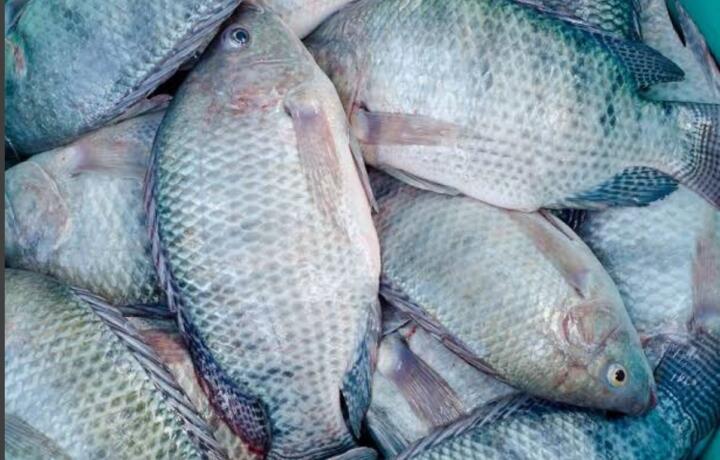The Fisheries Society of Nigeria (FISON) has urged the government to establish a national institute dedicated to fisheries and aquaculture to address critical challenges in the sector and drive sustainable growth. According to FISON, a dedicated institute would play a vital role in advancing research, training, and policy development, while promoting economic benefits and food security.
Importance of a Fisheries Institute
Nigeria’s fisheries and aquaculture sector is a significant part of the country’s agricultural landscape, providing employment and a critical source of protein for millions of Nigerians. However, the sector faces challenges, including limited research, inadequate training facilities, and outdated policies. Establishing a national institute, FISON argues, could address these challenges by fostering innovation, improving data collection, and developing skilled personnel.
A national institute would support fisheries research, focusing on sustainable practices and addressing environmental concerns such as overfishing and pollution. It would also provide much-needed data on fish populations, water quality, and ecosystem health, helping policymakers make informed decisions to ensure the sector’s long-term viability.

Enhancing Food Security
With Nigeria’s rapidly growing population, food security has become a pressing concern. Fisheries provide a high-protein food source essential for millions across the country, particularly in coastal and riverine communities. However, the domestic production of fish is currently insufficient to meet local demand, resulting in significant fish imports. A fisheries institute could work toward increasing local fish production through research on breeding techniques, disease control, and aquaculture technologies.
By enhancing fish production, the institute would also help reduce the country’s reliance on imported fish, which often comes at a high cost. Developing sustainable fish farming practices would contribute to food security and provide affordable protein options, particularly as climate change poses risks to traditional farming.
**Boosting Economic Opportunities**
The fisheries sector provides livelihoods for millions of Nigerians, from fishers to traders, processors, and transporters. With the establishment of a fisheries institute, there would be a more organized framework to address the unique economic challenges within the industry, such as unstable fish prices and seasonal disruptions. By focusing on capacity-building programs and advanced fish farming methods, the institute could help create a steady source of income for fishers and those involved in the value chain.
FISON envisions the institute as a hub for knowledge exchange, bringing together academics, fishers, and entrepreneurs. This synergy would drive innovations in processing, marketing, and fish handling techniques, ensuring that more value is added within Nigeria, rather than lost through exports of raw products. Such a shift could create more job opportunities and support the development of small and medium-sized enterprises (SMEs) across Nigeria’s fisheries value chain.
**Environmental Sustainability**
Overfishing and environmental degradation threaten the health of Nigeria’s aquatic ecosystems. A national institute dedicated to fisheries would support research into sustainable fishing practices, balancing economic needs with environmental preservation. FISON highlights that the institute could promote sustainable fishery policies, enforcing regulations to prevent overfishing and protect endangered species.
Moreover, climate change is impacting fish habitats and altering migration patterns, which can reduce fish stocks. Through targeted research, the institute could develop strategies to adapt to these changes, such as promoting resilient fish species and improving water quality. This focus on sustainability would ensure that future generations can benefit from Nigeria’s aquatic resources.
**Educational and Training Benefits**
The institute would also serve as a center for education, training, and capacity building. FISON emphasizes the importance of equipping individuals with knowledge of modern fisheries practices, as well as the technical skills needed for effective aquaculture management. This training could extend beyond Nigeria, offering courses to neighboring countries and positioning Nigeria as a leader in fisheries education within West Africa.
Programs in fish health, water quality management, and fish breeding could help address knowledge gaps, empowering individuals and boosting productivity in the sector. The institute could also collaborate with international fisheries organizations to align Nigeria’s practices with global standards, further strengthening the sector’s potential.
**Support for Policy Development**
Finally, a dedicated fisheries institute could contribute significantly to policy development, offering data-driven recommendations to guide government decisions. By establishing regulations based on scientific research, Nigeria could address issues such as illegal fishing and promote the fair distribution of fishing licenses. FISON notes that a well-researched policy framework would ensure that fisheries resources are managed responsibly and equitably.
A national institute would also facilitate dialogue between stakeholders, including government agencies, local communities, and private investors, ensuring that policies consider the needs of all those involved in the sector.
Next Steps for Establishing the Institute
To bring this vision to life, FISON calls for collaboration between government agencies, private investors, and international bodies. Initial steps could include a feasibility study, identifying potential locations, funding sources, and strategic partnerships. FISON suggests that the institute could be housed under the Ministry of Agriculture and Rural Development to align with existing agricultural and fisheries initiatives.
By establishing a dedicated fisheries institute, Nigeria would take a significant step toward transforming its fisheries sector. This development promises not only economic benefits but also improved food security and environmental sustainability, ensuring that Nigeria’s aquatic resources remain a valuable asset for generations to come.
Support InfoStride News' Credible Journalism: Only credible journalism can guarantee a fair, accountable and transparent society, including democracy and government. It involves a lot of efforts and money. We need your support. Click here to Donate
